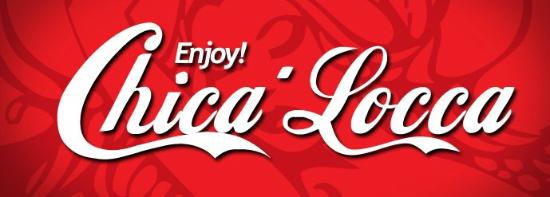Some Counterfeiters Also Deal in Missles
The Ninth Circuit’s May 21 decision in U.S. v. Chen says a lot about the folks who make money selling counterfeit goods. Not surprisingly, they make money a whole lot of nasty ways.
Mr. Chen was convicted of trafficking in counterfeit Marlboro cigarettes.
But that’s not all.
The first line of the opinion summarizes his misdeeds: “Yi Qing Chen appeals his conviction and sentence on five counts involving smuggling of cocaine, methamphetamine, cigarettes, and missiles.”
Missiles?!
That’s right. A guy who transported “roughly 8 million cigarettes” also conspired “to acquire missiles designed to destroy aircraft.”
The court found: “In his post-arrest statement Chen stated that the missiles would have been delivered” if he had been paid.
Wow!
Counterfeiters are criminals. It shouldn’t be surprising some of them are involved in selling more than fake consumer goods.
The case cite is United States v. Yi Qing Chen, No. 11-50196, 2013 WL 2177019 (9th Cir. May 21, 2013).
STL (Reader) on Infringement Safari
 Coca-Cola or Chica-Locca?
Coca-Cola or Chica-Locca?
A STL first: a reader’s infringement safari!
Seattle lawyer Kevin Halverson just returned from an enviable vacation to Mexico. “Warm-water surfing,” as he put it. Seriously, that right there is reason enough to practice law. I’m super-jealous.
But onto the infringement. The famous Coca-Cola logo morphs into “Chica-Locca” on trucks, t-shirts, and signs in Sayulita advertising the Chica Locca Magical Tour company’s boat tours, he says.
So what’s wrong with Chica Locca’s having a little fun with the Coca-Cola logo? No one really thinks they have something to do with Coca-Cola, right?
Probably not, but its use still amounts to trademark dilution. Under the Lanham Act (and many state statutes), dilution occurs when a famous trademark is used by a third party without the famous brand owner’s permission. The problem is not with a likelihood of confusion, but with watering down the famous brand. While consumers seeing the Coca-Cola logo used to think only of cola made by the Coca-Cola Company, consumers that have visited Sayulita now think of both the Coca-Cola Company and the Chica Locca Company. It’s an eroding of the power of Coca-Cola’s famous mark solely to stand for the company that makes Coke. It’s also an unfair free ride that Chica Locca has taken on the Coca-Cola Company’s fame.
But not to get too heavy. It’s a great find for a lawyer on vacation.
INTA: Counterfeiters and Bloggers. But No Counterfeit Bloggers
Counterfeit jerseys, vodka, motor oil, and hats
Counterfeit goods. They were everywhere at the International Trademark Association’s annual meeting.
That’s where I was last week: in Dallas, meeting with trademark colleagues from around the world. There were 9,500 of us. And a lot of counterfeit goods.
Jerseys, vodka, motor oil, hats. There was no shortage of examples on display.
A counterfeit good is a brand name put on a good that wasn’t made by the brand owner. Consumers often think they’re getting the real McCoy, but they’re actually buying a fake. Who knows who made what was purchased, or what the quality is. And it’s not all fake purses. Vodka? Motor oil? Counterfeiting can pose a real threat to the safety of unsuspecting purchasers.
That’s a point INTA wanted to help drive home. And they succeeded.
But INTA wasn’t all about counterfeiting. I took some time off to attend the decidedly genuine ninth annual “Meet the Bloggers” reception — a great success and a lot of fun. It’s always the highlight of the conference. Thanks to our hosts, which included luminaries Marty Schwimmer (Trademark Blog), Ron Coleman (Likelihood of Confusion), and John Welch (TTABlog)! It was a blast!
I almost got his autograph, too:
TTABlog’s John Welch at “Meet the Bloggers IX”
Costco Claims "Tiffany" Has Become Generic
Costco advertised some rings in its store as being “Tiffany” rings.
Problem is, Tiffany didn’t make them.
Costco says it wasn’t confusing anyone. It was just describing the setting style, which it says is known as a “Tiffany” setting.
Tiffany’s now suing Costco; Costco is counter-suing Tiffany, saying the “Tiffany” name has become generic.
In other words, Costco is saying that Tiffany’s invaluable brand no longer functions as a trademark; it instead denotes the good itself — a type of setting — the same way that nylon, aspirin, and elevator lost their proprietary meanings and became common words.
KIRO-Radio talked to me about this issue last week.
Do you think “Tiffany” has become generic?
Me? No way. Slam-dunk win for Tiffany.
We’ll see if the court agrees.
Different Musical Styles Avoid a Likelihood of Confusion
NEWSBOYS and NEW BOYZ:
Similar marks for bands, but no likelihood of confusion
Newsboys, Inc. v. Warner Music Inc., illustrates that similar marks paired with similar goods or services may not create a likelihood of confusion.
The secret is enough of a difference in the goods or services.
Plaintiff’s mark is NEWSBOYS. Defendants’ mark is NEW BOYZ. Both marks look and sound a lot alike. And both are used in connection with live musical performances.
But plaintiff uses its mark in connection with Christian rock. And defendants use their mark in connection with hip-hop. What’s more, according to plaintiff’s complaint, defendants’ group sings “‘sexually-charged,’ ‘sexually-explicit’ lyrics.”
The Middle District of Tennessee found this difference was enough to grant the defendants’ motion to dismiss plaintiff’s complaint. The services were just too different as a matter of law for confusion to be likely.
“[G]iven the stark differences in Plaintiff’s ‘Christian-based music’ versus New Boyz’s ‘sexually-charged’ hip-hop music,” the court wrote, it is “implausible that ‘Newsboys’ and ‘New Boyz’ are likely to cause confusion in the marketplace” — despite plaintiff’s claimed evidence of actual confusion.
This finding is unusual. The court itself acknowledged that “dismissal for failure to state a claim upon which relief can be granted is appropriate in only the most extreme trademark infringement cases….”
The case cite is Newsboys, Inc. v. Warner Music Inc., No. 12-0678 (M.D. Tenn. April 19, 2013).